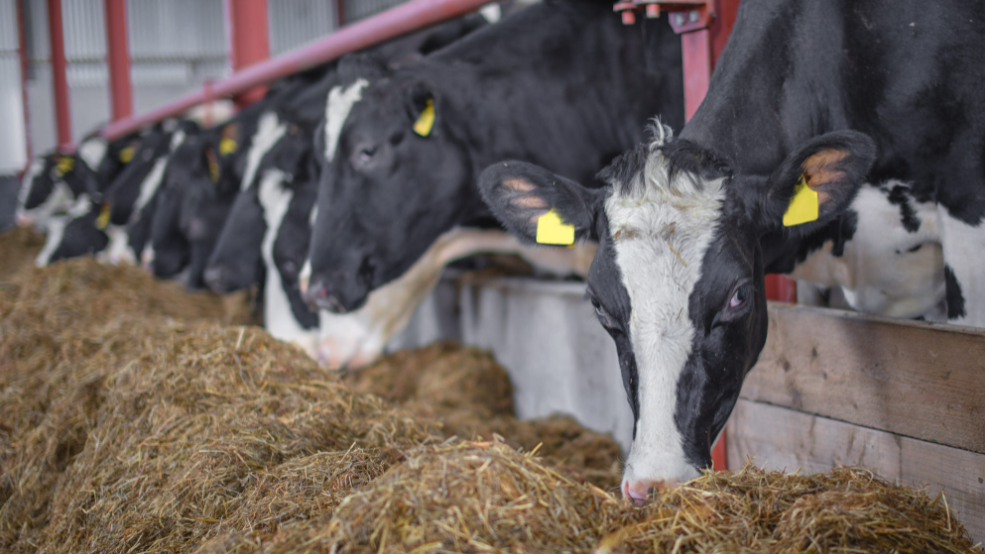Due to this increasing financial pressure, it will be crucial for producers to focus on efficient feeding strategies with the aim of improving milk solids to increase their margin per litre.
There are a multitude of factors that will affect milk composition such as genetics, stage of lactation, milk volume produced and nutrition. Focusing on nutritional management can positively influence milk solids quickly in comparison to breeding, which is a long-term project.
Consistently supplying adequate energy and protein and balanced amounts of rapidly fermentable carbohydrate and effective fibre are vital to maintaining optimum levels of milk components. The challenge in feeding for milk components is that high energy, low fibre diets that increase milk protein are likely to reduce fat levels. The opposite can be said for feeding higher fibre rations which could negatively affect milk protein levels, so getting the balance right is crucial.
Key nutritional factors that will influence milk protein and fat:
Milk Protein
• Maximise overall dry matter intake. (DMI)
• Increase the energy density of the diet.
• Improve quality forage to drive energy intake.
• Inclusion of a secondary forage such as whole crop or maize. (10% addition DMI)
• Increase starch and sugar levels in the diet.
• Addition of rumen protected fat.
Milk Fat
• Maximise forage intakes at the feed fence.
• Ensure there is adequate neutral detergent fibre (NDF) in the diet.
• Addition of chopped straw to complement highly digestible, leafy grass silages.
• Inclusion of rumen buffers and live yeast.
• Avoid excessive oil levels in the diet. (Brewers and distillers’ grains have elevated levels of oil)
• More dietary protein if needed to improve rumen digestion.
• Avoid slug feeding in the parlour. (Over 4kg per milking)
Despite soaring fertiliser prices, it will still be important to bear in mind that producing high quality forage for next winter is the cornerstone to efficient milk production and rumen health. High D value forage will have a significantly higher intake potential and increased metabolisable energy per kg of dry matter; two essential components to boosting milk fat and protein.
Fane Valley Feeds offer a wide range of feeds that will nutritionally support improved milk solids. The inclusion of Acid Buff and Actisaf yeast will provide an enhanced buffering capacity, optimise rumen conditions and improve overall feed efficiency.
If required, we can supply tailor made feed solutions to suit specific forage analysis and balance other feeds being used on farm to maximise performance. Regular forage testing is also advisable to ensure the diet is nutritionally balanced and cow requirements are met.
